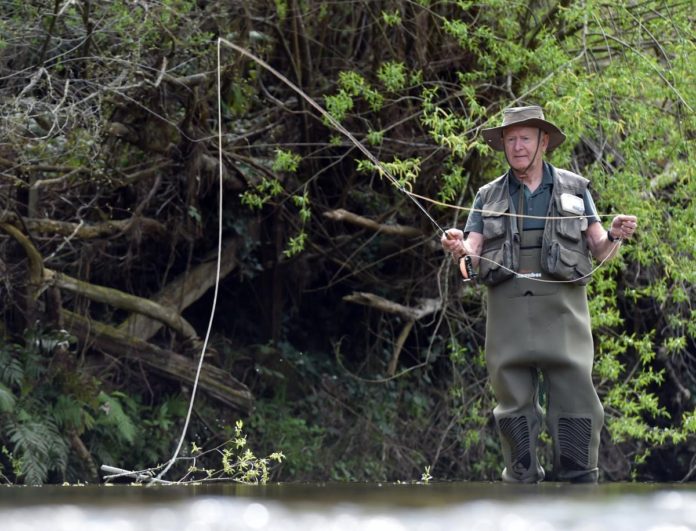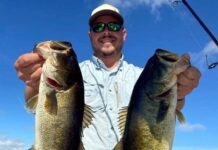Rain earlier in the week has raised river levels a little but they are already dropping and should not spoil the chances of catching a fish at the weekend.Streams may be a little misty but the old rule applies: if you can see the river bed in at least 30cm of water it is clear enough to catch fish by any means.
If the water is very dirty then brightly coloured or silver spinning lures are the best bet.
In the evenings, if there is a rise it does not matter how dirty the water is.
A long time ago and far away, I once fished 28 evenings in August and the river conditions varied from low summer level and clear to high and dirty. I caught fish on each outing, although the best results were when it was low and clear.
When fishing the evening rise at any time, do not be in a hurry to start, although I like to get to the water in good time to assess conditions and pick a likely spot.
Also do not be in a hurry to head for home. The last evening rise I fished the few fish caught were landed well after sunset.
The weather forecast for the weekend looks promising, as far as cicadas are concerned.
Speaking from experience, it is possible to leave home in perfect conditions, warm and sunny, and arrive at a tussock lake and find that it is cold and overcast.
Cicadas need the air temperature to be about 18degC to fly. You may hear them chirping in the tussock when it is cooler than that, but there will be none on the water.
It may seem pointless fishing but if the fish have been feeding on cicadas for days before, a speculative cast with an imitation can produce fish.
I once fished lake Onslow and as I tackled up, a strong southwest wind sprang up, it started to rain and the temperature dropped to 5degC.
I caught several fish on my cicada pattern but after an hour the conditions drove me from the water.
If no fish are rising, whether there are cicadas on the water or not, it is worth trying imitations of other creatures that trout prey on, such as damsel fly nymphs or water boatmen.
If there are no tell-tale rises to give away the location of trout, there are certain features of the lake that help find them. If there is a breeze blowing find a point with the wind blowing across the end of it.
As trout feed upwind when they come to a point, they have to swim around it so there will be more fish passing the point than in open water.
Cast straight pout from the point and retrieve.
Your fly will be travelling through path of more fish, increasing the chance of catching.
I was on Stewart Island last weekend and did not catch a single trout.
Credit: Source link































